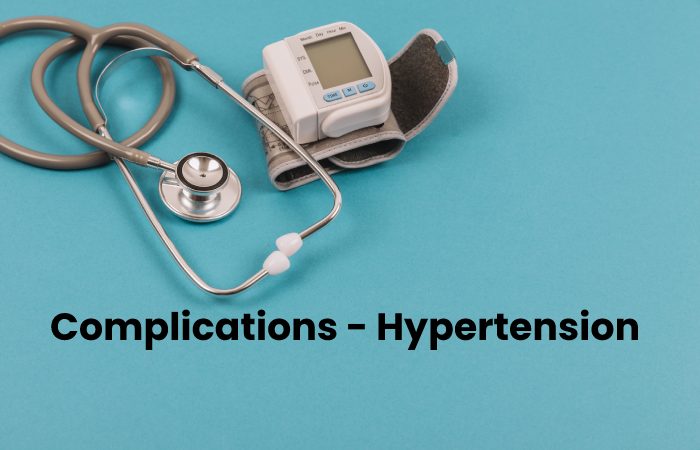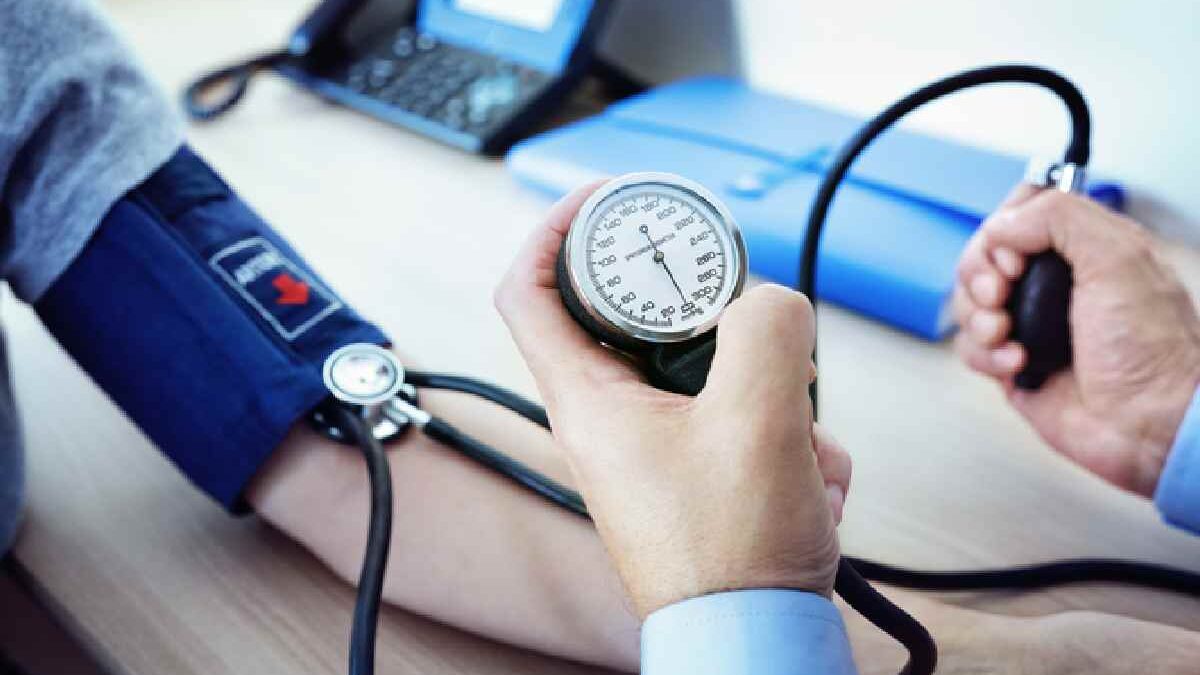Table of Contents
Introduction
Hypertension means that your blood pressure is slightly higher than what is measured. Anyone can get high blood pressure, even children, especially if they are overweight or obese. High blood pressure is likely to turn into hypertension unless you start making lifestyle changes, such as doing more exercise and eating healthier foods.
Hypertension and high blood pressure raise the risk of heart attack, stroke, and heart failure. Research indicates that long-term (chronic) high blood pressure may contribute to cognitive waning. Weight loss, exercise, and extra healthy lifestyle changes can regularly control high blood pressure and lay the foundation for a healthier life.
Lifestyle Changes
You can take many steps to help control your blood pressure, such as:
- Eat a heart-healthy diet that includes potassium and fibre.
- Drink a lot.
- Get at least 40 minutes of exercise, at least 3 to 4 days a week.
- If you smoke, quit.
- Reduce the amount of liquor you drink to 1 drink a day for women and two drinks a day for men or less.
- Decrease the quantity of sodium (salt) you eat. Try to consume less.
- Cut off stress. Try to avoid things that cause you stress, and try yoga to de-stress.
- Maintain healthy body weight.
Types of High Blood Pressure
There are two types: primary and secondary.
Primary or essential: It is the most mutual type of high blood pressure. Usually develops over time as you age.
Secondary: It causes by another medical condition or certain medications. Usually gets better when the cause is treated or when you stop taking the drugs that cause it.
Why do I have to Worry about High Blood Pressure?
When your blood pressure stays high for a long time, it makes your heart pump harder and works too hard, leading to serious health problems, such as heart attack, stroke, heart failure, and kidney failure.
Causes – Hypertension
Anything that increases pressure against the walls of the arteries can cause high blood pressure. The buildup of fatty deposits in the streets can trigger high blood pressure. In addition to atherosclerosis, other diseases that can lead to elevated blood pressure or high blood pressure include the following:
- Obstructive sleep apnea
- Renal disease
- adrenal gland disease
- Thyroid
Certain medications can temporarily increase your blood pressure, such as birth control medicines, cold remedies, decongestants, over-the-counter pain relievers, and prescription drugs. Illicit medicines, such as cocaine and amphetamines, can produce the same effect.
Risk Factor’s
Risk factors for high blood pressure consist of the following:
Overweight or obesity
The larger your body mass, the more blood you need to supply oxygen and nutrients to your tissues. As the amount of blood flowing through blood vessels increases, the pressure on the walls of the arteries also increases.
Gender
High blood pressure is more mutual in men than women until around stage 55. Women are further likely to develop high blood pressure after 55.
Career
High blood pressure is mutual mainly in people of African descent and often appears at a younger age than in white people.
Family History of Arterial Hypertension
If a family, such as a parent or a sibling, has high blood pressure, they are more likely to develop it.
Lack of Physical Activity
Not exercising can source weight gain and increase the risk of high blood pressure.
Tobacco use
Smoking cigarettes, chewing tobacco, or being around other people who smoke (secondhand smoke) can increase blood pressure.
Excessive alcohol consumption
Alcohol consumption has associated with high blood pressure, especially in men.
Certain chronic diseases
Kidney disease, diabetes, and sleep apnea, among other conditions, can increase your risk of high blood pressure. Although high blood pressure and high blood pressure are more common in adults, children can also be at risk. High blood pressure may be due to kidney or heart problems in some children. However, poor lifestyle habits such as an unhealthy diet, obesity, and lack of exercise for many children contribute to high and high blood pressure.
Complications – Hypertension

High blood pressure is likely to worsen and turn into high blood pressure (hypertension). High blood pressure can harm organs and increase the risk of several conditions, including heart attacks, heart failure, strokes, and kidney failure.
Prevention – Hypertension
The same healthy lifestyle changes suggested for controlling high blood pressure also help prevent hypertension. You’ve heard it before: eat healthy foods, eat less salt, work out often. But take the guidance seriously. Start taking healthy habits now.
How to Lower Blood Pressure Fast Naturally?
The tendency to have blood pressure or hypertension is one of the most mutual conditions in the world, due, in part, to the lifestyle that has to acquired in recent decades. A sedentary lifestyle, a high-fat diet, stress, or even genetics can affect and condition your body so that pressure is higher than usual. You have an advanced risk of heart disease or stroke if this happens.
However, although a doctor’s devotion is necessary for high blood pressure, you can use a series of advice in your daily routine to lower your stress slowly, and if you have this propensity, high.
Workout Regularly
For your blood pressure to be standard, the foremost significant thing is to have a strong heart that tickers blood well and healthy blood vessels, so you have to take good care of them and help them.
Reduce salt
Our body is planned to be able to method sodium, that is, salt, and we need it to be healthy, but always in the right amount. Thus, as is the case with precooked foods, additional salt in foods can be harmful to our bodies in the long run. Although sodium should not remove entirely from our diet, we must be cautious with the amounts.
Reduce Liquor
The truth is that alcohol is a rival for our body and, especially, for the proper working of our arteries and heart. If you do not need to stop consuming it, you should moderate the amount of alcohol you drink.
Eat Diets Rich in Potassium
If sodium has become an opponent for our blood pressure, potassium is an ally. This vital mineral is responsible for eliminating excess sodium in the body. Start by questioning yourself if you are within your ideal weight. Obesity and being overweight are determining factors for suffering from cardiovascular conditions.
Do not Smoke
We have long known that smoking causes various health problems, some minor and some very serious, and even fatal.
What are the different kinds of High Blood Pressure?
There are two main kinds of high blood pressure: primary and secondary.
Primary or essential: It is the most mutual type of high blood pressure. Usually develops over time as you age.
Secondary: It is caused by another medical condition or the use of certain medications. Usually gets better when the cause is treated or when you stop taking the drugs that cause it.
Why do I have to worry about High Blood Pressure?
When your blood pressure stays high for a long time, it makes your heart pump harder and works too hard, leading to serious health complications.
What are the Treatments for High Blood Pressure?
Medication for hypertension contains heart-healthy lifestyle changes and medications. Your health provider will work with you on a treatment plan. It may just include lifestyle changes. These changes, like heart-healthy eating and exercise, can be very effective. However, sometimes the changes do not control or lower high blood pressure. If that happens, you may need to take medication. There are different types of blood pressure medicine.
When considering the best treatment for high blood pressure, you and your provider should consider other factors such as:
- Your age
- the medications you take
- Secondary risks of the possible remedies to be taken
- Your provider will recommend lifestyle changes to lower your blood pressure to normal.
- Drugs are barely used at this phase.
Conclusion
Blood pressure is the power of your blood forceful against the walls of your arteries. Every while your heart beats, it pumps blood into your arteries. Your blood pressure points when your heart beats; pumping your body is called systolic pressure. A diastolic burden is a systolic number placed before or above the diastolic number. For example, 120/80 means a systolic pressure of 120 and a diastolic pressure of 80.

